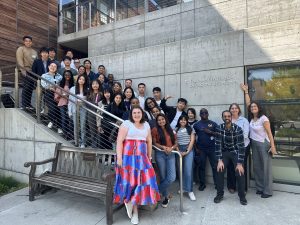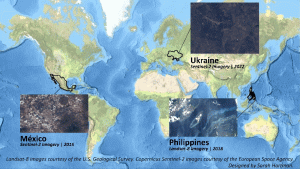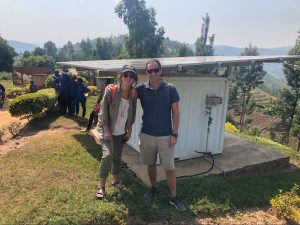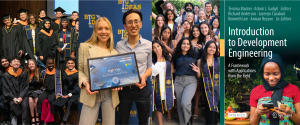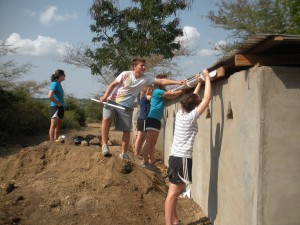
Major: Political Economy
Year of Graduation: Spring 2012
Location and date of Field Experience: Tanzania, Summer 2011
Organization: African Immigrant Social and Cultural Services
Project Description: Initiate the planning, preparation, and implementation of a bread oven in the region.
Hometown: New Delhi, India and Anahiem Hills, CA
Current Location: Berkeley, CA
Quote: I knew that I wanted to work on global poverty issues for my whole life, so when I heard about the minor, I thought, “Cool, this is an opportunity to get some academic training in this area I’m passionate about!”
Could you describe your practice experience?
I went to Tanzania specifically to work on a bread oven project, but things totally changed when I got there. We ended up working on large rainwater harvesting tins, latrines, we built a chicken coop and made a children’s gymnastics dome-type structure… That was one of the most important things I learned: what you sign up for isn’t necessarily what you’re going to get. I think that’s probably something really common in global development– it’s not really something you can teach, you more so have to experience it.
What was one significant challenge you faced?
I’d say that my “narrow vision” was a problem I frequently had to deal with. Even having grown up partly in a developing country, there were still a lot of things that I forgot and took for granted. My eyes were opened… I was shocked when I had a side conversation with a woman who asked me about contraception. She was a mother of 10 and didn’t want to have any more children. Before that conversation, I had known she was a mother of 10 but hadn’t really thought much about it. In that moment I realized, “Oh my God, if she had any control over the situation, she would probably not have 10 children…” There are so many intertwining issues that I had never thought about– so many things that were daily life challenges that I had to be beaten over the head with before I really understood.
Describe one interesting and/or inspirational person you encountered.
The founder of the organization, Christine Chacha, was a Swahili professor born and raised in the village area we were working in. She actually passed away a few months ago from cancer, but she was the reason I was attracted to the organization. She understood both foreign and local cultures and could bridge the gap between the two by using what both sides had to offer. She was so full of life and so amazing in her ability to work with and get cooperation from people of all types in the village. She would shame lazy workers, but then hug any small child around. She would sing and dance around the house. Even though she was sick, she was such a force of life. It was an honor to be around her and I am so grateful to have had that time with her.
How has the GPP minor influenced your plans for the future?
I am now forced to question the structure within which I’m working– especially now that I’m working from a grant-giving side. I’ll be critical of the criteria we’re using to evaluate things: Is this the most efficient way to accomplish something? How was it conceived and organized?
Becoming really critical has become my greatest gift from the minor and I hope that stays with me forever. It has changed me so much in terms of how I think about how the world got to be the way it is, which I think is really important to be conscious of if you want to be a part of changing the world into something else.

